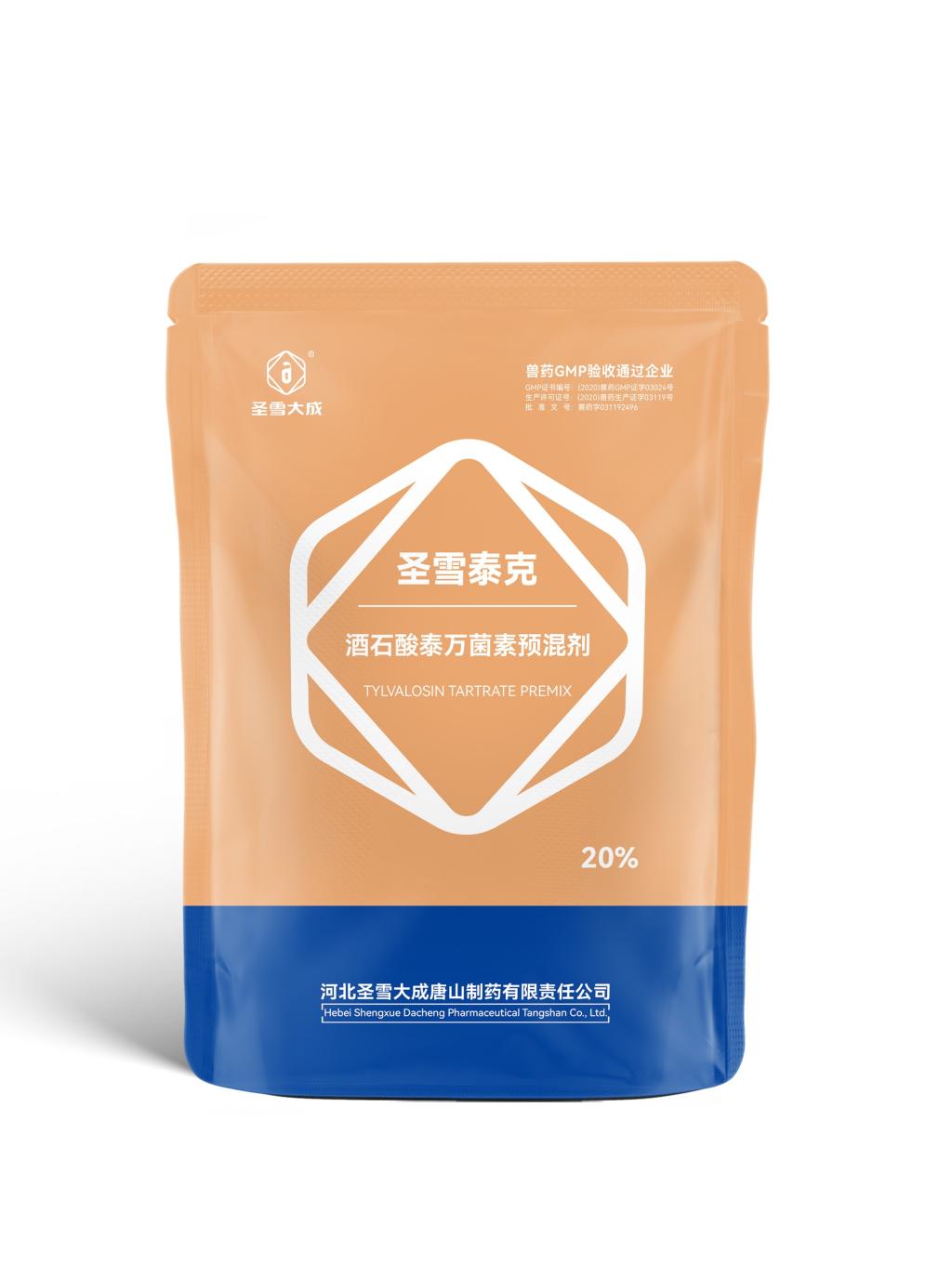Tel:+8618231198596

News
 CONTACT
CONTACT
 CONTACT
CONTACT
- Linkman:Linda Yao
- Tel: +8618231198596
- Email:linda.yao@dcpharma.cn
- Linkman:CHARLES.WANG
- Department:Overseas
- Tel: 0086 0311-85537378 0086 0311-85539701
News
Tylvalosin tartrate premix supports the health of growing livestock.
TIME:2024-07-09
Importance of Supporting Livestock Health
Maintaining the health of growing livestock is critical for several reasons:
Optimal Growth and Development: Healthy animals are more likely to achieve their genetic potential for growth, leading to improved productivity and profitability for farmers.
Disease Prevention: Preventing and controlling diseases reduces morbidity and mortality rates among livestock, minimizing economic losses and preserving animal welfare.
Food Safety: Healthy animals produce safe and wholesome food products for human consumption, meeting stringent regulatory standards and consumer expectations.
Environmental Sustainability: Healthy animals require fewer resources and inputs, contributing to sustainable farming practices and reducing the environmental footprint of livestock production.
Benefits of Tylvalosin Tartrate Premix
The use of tylvalosin tartrate premix in livestock production offers numerous benefits related to supporting animal health:
1. Control of Bacterial Infections
Tylvalosin tartrate effectively controls bacterial infections such as Mycoplasma spp., Pasteurella spp., and Actinobacillus spp., which are common pathogens causing respiratory and enteric diseases in livestock.
2. Respiratory Health
In poultry and swine, tylvalosin tartrate supports respiratory health by reducing the severity and prevalence of respiratory diseases such as chronic respiratory disease (CRD) in chickens and enzootic pneumonia in pigs.
3. Enteric Health
The antibiotic's activity against Lawsonia intracellularis and Brachyspira hyodysenteriae contributes to intestinal health in pigs, reducing the incidence of diseases like proliferative enteropathy and swine dysentery.
4. Growth Promotion
By controlling infections and reducing the physiological stress associated with disease, tylvalosin tartrate promotes optimal growth rates and feed efficiency in growing livestock.
Mechanisms of Action
The mechanisms underlying the health-supporting effects of tylvalosin tartrate involve its pharmacodynamic properties:
1. Inhibition of Protein Synthesis
Tylvalosin tartrate binds to the 50S ribosomal subunit of bacteria, inhibiting protein synthesis and disrupting bacterial growth and replication.
2. Anti-inflammatory Effects
Beyond its antimicrobial activity, tylvalosin tartrate exhibits anti-inflammatory properties that reduce tissue inflammation and promote recovery from respiratory and enteric diseases.
3. Immunomodulatory Effects
The antibiotic's impact on immune responses helps modulate the immune system's reaction to infections, enhancing the animal's ability to combat pathogens and recover from illness.
4. Gut Microbiota Preservation
Unlike some antibiotics, tylvalosin tartrate minimally disrupts the beneficial gut microbiota of animals, supporting intestinal health and nutrient absorption.
Research Findings
Research on tylvalosin tartrate premix has provided valuable insights into its efficacy and applications in livestock production:
Poultry
Studies have demonstrated that tylvalosin tartrate improves growth performance and reduces the incidence of respiratory diseases in broiler chickens, contributing to enhanced profitability for poultry producers.
Swine
In pigs, tylvalosin tartrate has been effective in controlling Mycoplasma infections and reducing the severity of enteric diseases, leading to improved feed efficiency and health outcomes.
Cattle
Although less studied compared to poultry and swine, tylvalosin tartrate has shown promise in enhancing respiratory health and growth rates in beef and dairy cattle, particularly in feedlot and intensive production systems.
Challenges and Considerations
Despite its benefits, several challenges and considerations accompany the use of tylvalosin tartrate premix in livestock production:
Regulatory Compliance
Adhering to regulatory guidelines and withdrawal periods for tylvalosin tartrate residues in meat and milk products is essential to ensure food safety and compliance with legal standards.
Antimicrobial Resistance
Continuous monitoring for the development of antimicrobial resistance and implementing stewardship practices are critical to preserving the efficacy of tylvalosin tartrate and other antibiotics.
Economic Viability
While tylvalosin tartrate can improve growth performance and feed efficiency, the cost-effectiveness of its use must be evaluated based on production systems, market conditions, and farm-specific factors.
Consumer Perception
Public concern over antibiotic use in livestock production necessitates transparent communication and education about the responsible use of tylvalosin tartrate and its impact on food safety and animal welfare.
Regulatory Considerations
The use of tylvalosin tartrate in livestock production is subject to regulatory oversight to ensure responsible use and safety:
Approval and Labeling: Tylvalosin tartrate premixes are approved for specific indications and species by regulatory authorities based on safety, efficacy, and environmental considerations. Labels provide dosing guidelines and withdrawal periods for meat and milk products.
Veterinary Oversight: Veterinarians play a crucial role in prescribing and overseeing the use of tylvalosin tartrate, ensuring proper dosage and compliance with regulatory requirements.
Global Harmonization: Harmonizing regulatory standards for tylvalosin tartrate use across different regions promotes consistent practices and facilitates global trade in livestock products.
Future Perspectives
The future of tylvalosin tartrate premix in livestock production holds promise, with ongoing research and innovation focusing on:
Precision Livestock Farming
Advancements in precision agriculture technologies, including sensor-based monitoring and data analytics, can optimize the use of tylvalosin tartrate and enhance health outcomes in livestock.
Sustainable Use Practices
Promoting sustainable livestock production practices, such as reduced antibiotic use strategies and environmental stewardship, supports the long-term viability of tylvalosin tartrate as a tool for enhancing animal health and welfare.
Alternative Formulations
Developing novel formulations of tylvalosin tartrate premix, such as encapsulation or slow-release technologies, can improve bioavailability and extend therapeutic effects, further supporting livestock health and productivity.
Integrated Health Management
Integrating tylvalosin tartrate with comprehensive health management programs, including vaccination protocols, biosecurity measures, and nutrition strategies, maximizes its benefits for animal health and farm profitability.
Conclusion
Tylvalosin tartrate premix plays a crucial role in supporting the health of growing livestock by controlling bacterial infections, promoting growth efficiency, and enhancing overall productivity in farming operations. By optimizing feed conversion rates and reducing disease prevalence, tylvalosin tartrate contributes to sustainable livestock production practices and ensures the production of safe and high-quality food products. While challenges such as regulatory compliance and antimicrobial resistance require ongoing attention, the continued research and responsible use of tylvalosin tartrate hold promise for advancing animal health and welfare in modern agriculture. Embracing innovation and stewardship will facilitate its sustainable integration into livestock production systems, meeting global demands for safe, nutritious, and environmentally responsible food production.
- Tel:+8618231198596
- Whatsapp:18231198596
- Chat With Skype







